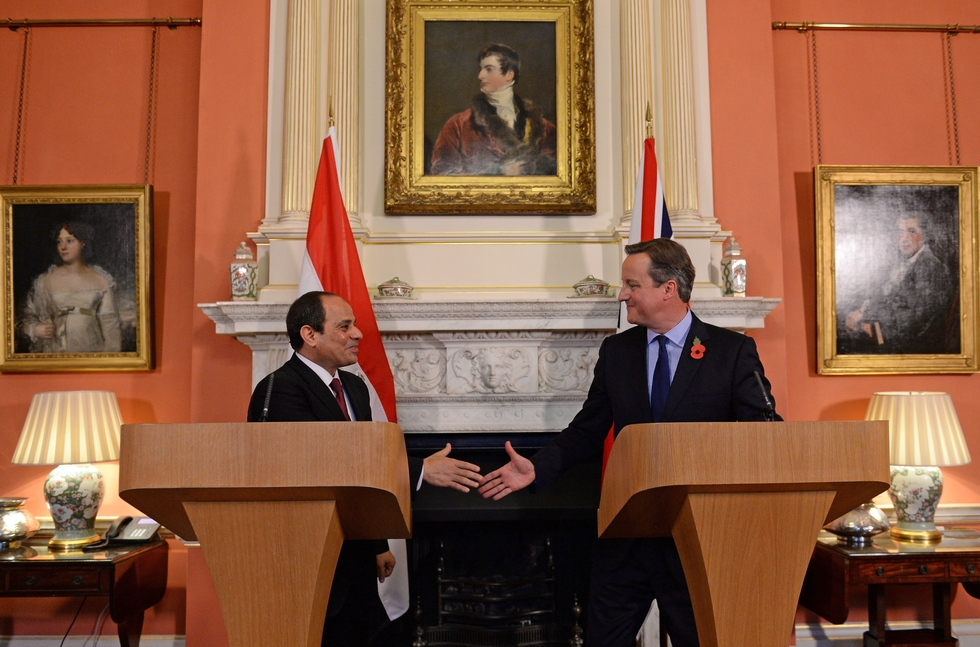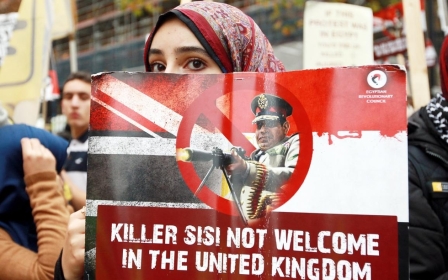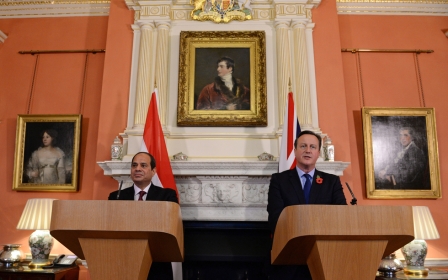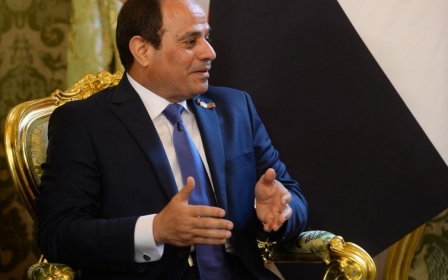Egyptian war crimes suspects didn't travel with Sisi to UK: Police

British anti-terrorist police have confirmed that none of the 43 top ministers and military aides who had command and control responsibility for the mass deaths that occurred in Cairo in August 2013 accompanied Egyptian President Abdel Fattah al-Sisi on his visit to London.
Sisi himself is immune to prosecution because he is head of state, but other members of his cabinet and administration are not, unless they applied for and received special mission immunity from the Foreign Office.
The government’s frequent use of this tool is currently being challenged in court by a former director of public prosecutions, Lord Macdonald, who is acting on behalf of the deposed Egyptian president Mohamed Morsi.
In a letter to lawyers acting on behalf of Morsi and the Freedom and Justice Party, the war crimes unit of SO15 wrote: “The War Crimes Team is not currently in possession of any information which would suggest that any of the 43 suspects, referred to us as part of the scoping exercise, are currently in this jurisdiction. The only exception is Mr el-Sisi, who, due to his position as head of state, has immunity.”
The war crimes team said that should any of these individuals arrive in the UK, the police would seek to implement any action they deemed to be appropriate to further their investigations. They have already begun interviewing victims and survivors of the events in Cairo in August 2013 and collected lengthy witness statements.
Last month Lieutenant General Mahmoud Hegazy, the chief of staff of the Egyptian Army, was given special mission immunity to come to the UK at the invitation of the Ministry of Defence on a four-day visit.
The decision to give Hegazy immunity is being challenged in the courts on two counts. The legal team of the FJP will argue that there is no basis in British law for that immunity, and that, on the contrary, there is a basis in British law to investigate claims of torture. Section 134 of the Criminal Justice Act empowers the British police to detain for questioning anyone accused of organising torture in detention.
The aim of the legal process is to prevent special mission immunity from being used as a loophole which would shut off the universal jurisdiction of British courts and to shield any foreign visitor from an investigation into allegations of serious crimes such as war crimes and torture.
Middle East Eye propose une couverture et une analyse indépendantes et incomparables du Moyen-Orient, de l’Afrique du Nord et d’autres régions du monde. Pour en savoir plus sur la reprise de ce contenu et les frais qui s’appliquent, veuillez remplir ce formulaire [en anglais]. Pour en savoir plus sur MEE, cliquez ici [en anglais].




